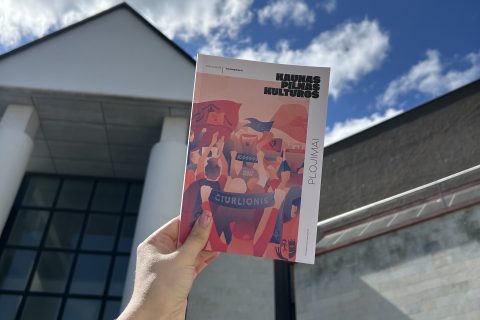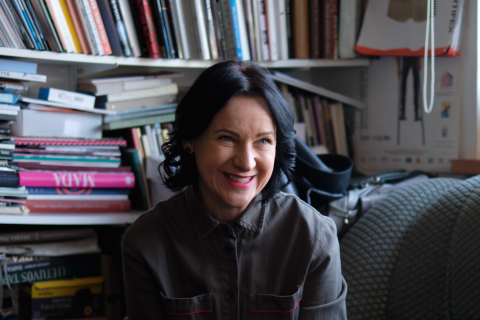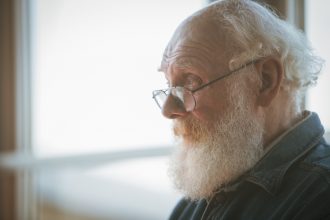The whole of Lithuania has heard him, but few have seen the face. Saulius Bagaliūnas, one of the country’s most famous television voices, probably the country’s longest-serving puppeteer, an active reader, and a lover of poetry, has been awarded the Kaunas Prize for Culture this year. We met for a chat at the Kaunas State Puppet Theatre Museum.
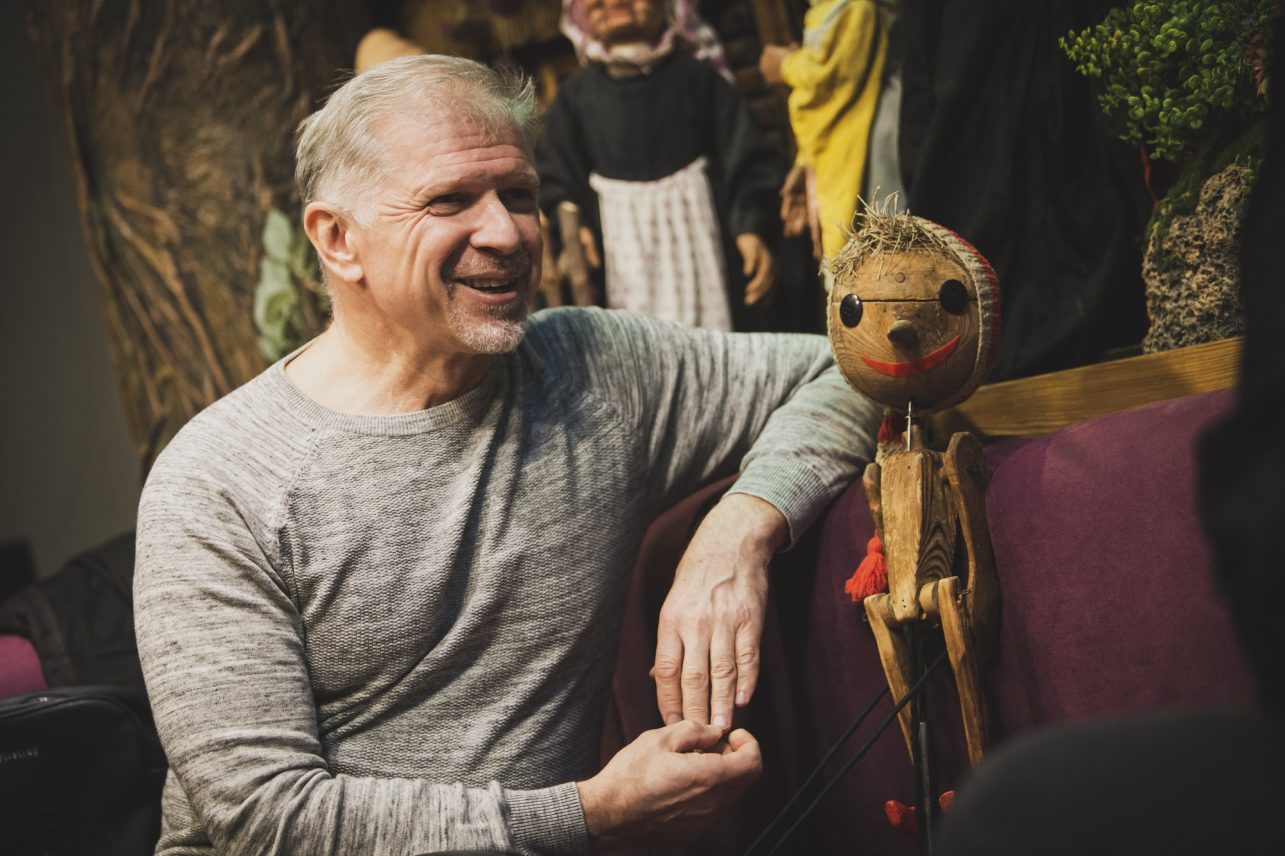
Just before the interview, Saulius looks around and sneaks out of the room. Having heard that we are going to talk more about his common humanity than about the backstage of his work, he runs off to pick up a puppet, which must appear in the interview.
“We are preparing a new play, The Secret Life of Puppets, and rehearsing intensively. Once, before the performance, the puppets decide that they don’t want to be controlled by the others: actors/puppeteers. They rebel and take over the whole creative process,” the interviewee briefly introduces the play that will take place on May 20, 21, and 27.
The wheel has come full circle
After placing the obviously elderly Pinocchio on his lap, the actor explains how reluctant he was about this puppet. “I work here for 40 years, but I’ve never seen this puppet. And when I saw it, it gave me the creeps.”
Saulius Bagaliūnas was a second grader at Vievis School, aged 8 when he first saw a puppet show.
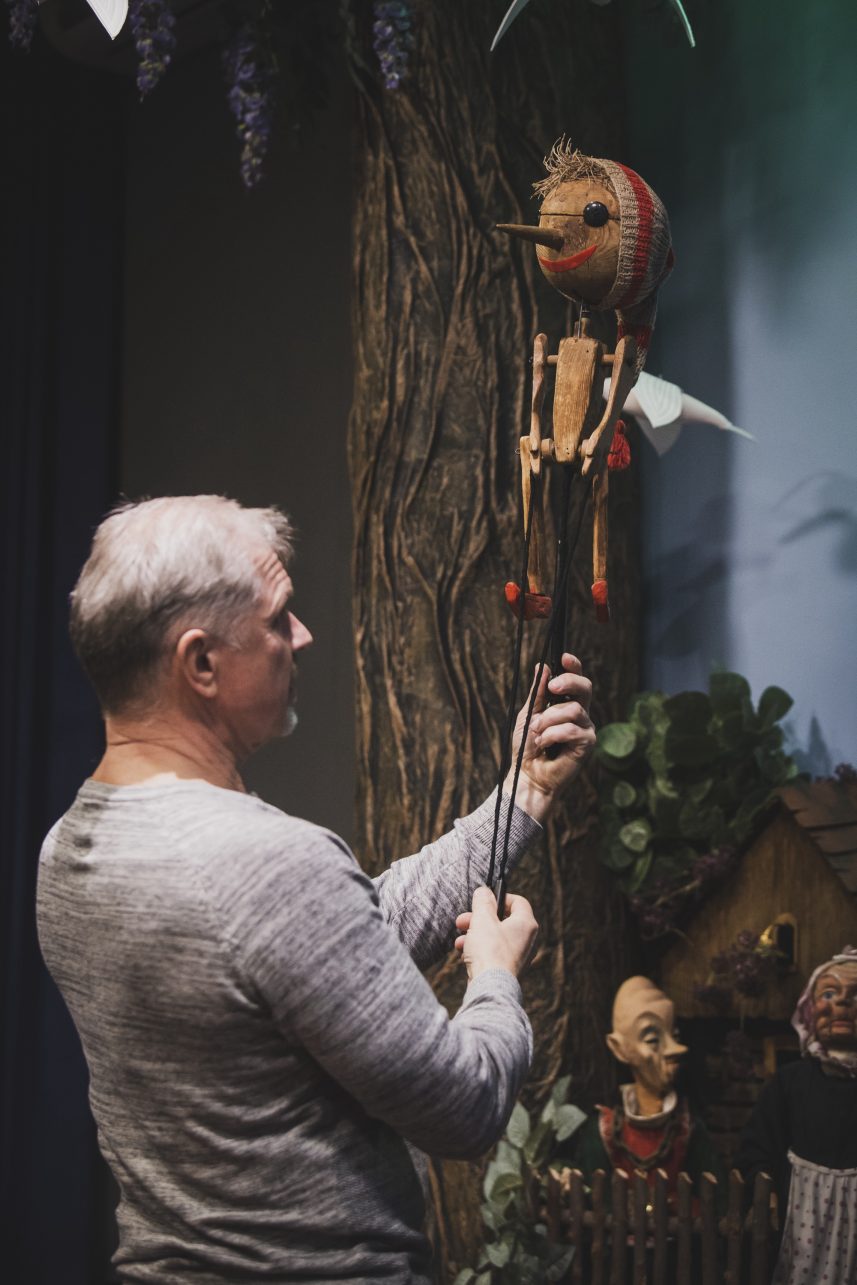
“And suddenly I saw a robot. Made of aluminum foil. And Pinocchio. But most importantly, I saw a lion and I couldn’t believe it: a real king of beasts from a fairy tale. When I got home, I told my mother that I had seen a lion. I believed completely that it was real, that there was no theatre,” the old-timer of Kaunas State Puppet Theatre says.
From then on, he started to play, manipulate objects and create some kind of primitive theatre himself. For example, he would take his mother’s handbag and open it with strings, imagining jaws. That was the beginning of his career.
“I told Rimas Driežis that when I was a kid I saw a play with a lion, Pinocchio, and a robot. He immediately remembered that it was a play called Buratinas Flies to the Moon. That was the same puppet that was playing in Vievis when I was 8 years old. Almost 60 years later, we meet again. It is my destiny.”
The Lion’s motivation
That lion became a kind of starting point and symbol of our conversation. Saulius doesn’t hide the fact that the king of beasts he saw that day was more than just an image. It was a real catharsis, something extraordinary but recurring.
“My mother went to Palanga in the summer when she was pregnant with me, to the Tiškevičius Palace, and took a picture next to the lion, which I still have. When I arrived in Kaunas, without knowing the city, straight after the academy, I found myself in front of the War Museum and the first thing I saw was the lions. And those beasts have been following me, helping me, raising me, accompanying me ever since. It helped me to realize that I had to be a puppet theatre lion,” S. Bagaliūnas says proudly.
After graduation, Saulius was invited to work in Panevėžys by many people, including Donatas Banionis, but he got appointed to work in Kaunas. He was not happy at first, but the lion was supportive. It gave him some motivation, guarantees, strength, and backbone to grow the lion’s jaws, the mane, and also to become a king.
It’s not the theatre that changes, it’s the people
Currently, only a couple of people have been working at Kaunas State Puppet Theatre longer than Saulius. He has seen the place change and evolve. Saulius started working here back when Stasys Ratkevičius was the head of the theatre and who also built the team of actors.

“The building is the same, it’s an interwar period building, a former cinema. The layout has changed a bit, but the walls are the same, and the purpose is the same, but the time and people are different. There has been a strong creative change with the younger generation, which is much more energetic and restless,” the well-known puppeteer says.
Saulius says he started working in a very serious team. The directing school at that time was very strict. Actors were told what to do in detail, the whole choreographic drawing, and how the movements should be. They were not given any space for their own creative input – they were just movers of objects.
But the expressive actor is happy, “It’s changing, and I love it. I’ve always been the troublemaker. I used to say, ‘Wait a minute, let’s not be afraid of this, let’s try something different.’ And I’ve noticed that you can change a lot during rehearsals. In rehearsals, we sometimes change the whole concept of the play.”
The new generation is certainly no longer the followers of the director’s whims. They are searching, working, trying to propose things, trying to find solutions. That’s the change that has come in 40 years. There are disruptive performers and creative ones that are worthy of attention.
Behind-the-scenes work
The long-standing luminary of Kaunas cultural life makes no secret of the fact that working in television is probably the most satisfying choice of his life.
“What to call it? Dubbing, voice acting, voice-over? It’s a separate discipline with no school, but full of its own rules and requiring skills that are quite rare in society,” Bagaliūnas says.

A professional voice-over actor cannot disturb a viewer and cannot get out of the three-tone range. You have to limit yourself. Moreover, it is very important to read the text on time so that the actor’s original voice could speak at the beginning. Only then the dub can be heard, and then space must be left so that the listener can hear the end of the original as well.
Little things like this allow a more organic view of a film with an invasive element. The two projects I’m most excited about from this career path are Home and Away and Pinky and the Brain. Both brought up separate generations and audiences, but they were a professional success and inscribed themselves in the collective consciousness with my voice.”
The actor is grateful to Egidijus Stancikas, the current director of the National Kaunas Drama Theatre, for getting him into LNK studio, which was then located in Lapės. Back then, the interviewee used to prepare a lot for his work. He trained at home and got overworked. He doesn’t hide the fact that he eventually got used to it, and now, even when he hears his voice on TV, he sometimes doesn’t remember having voiced such a film.
Love for his country is in his genes
Before the interview, when I was looking for information about Saulius, I noticed one thing – he is no stranger to the roles in which he embodies the founding fathers of our country. He has either acted, read, or otherwise been involved in works featuring J. Basanavičius, A. Smetona, and A. Voldemaras.
“You probably wouldn’t look at me and say what you would say about these people. I imagine that I am rather gentle and soft. Even when I get into a new team, with strangers, they soon address me in a diminutive of my name. I have the aura of a warm and sensitive person, which is suitable for vampires,” the actor laughs.
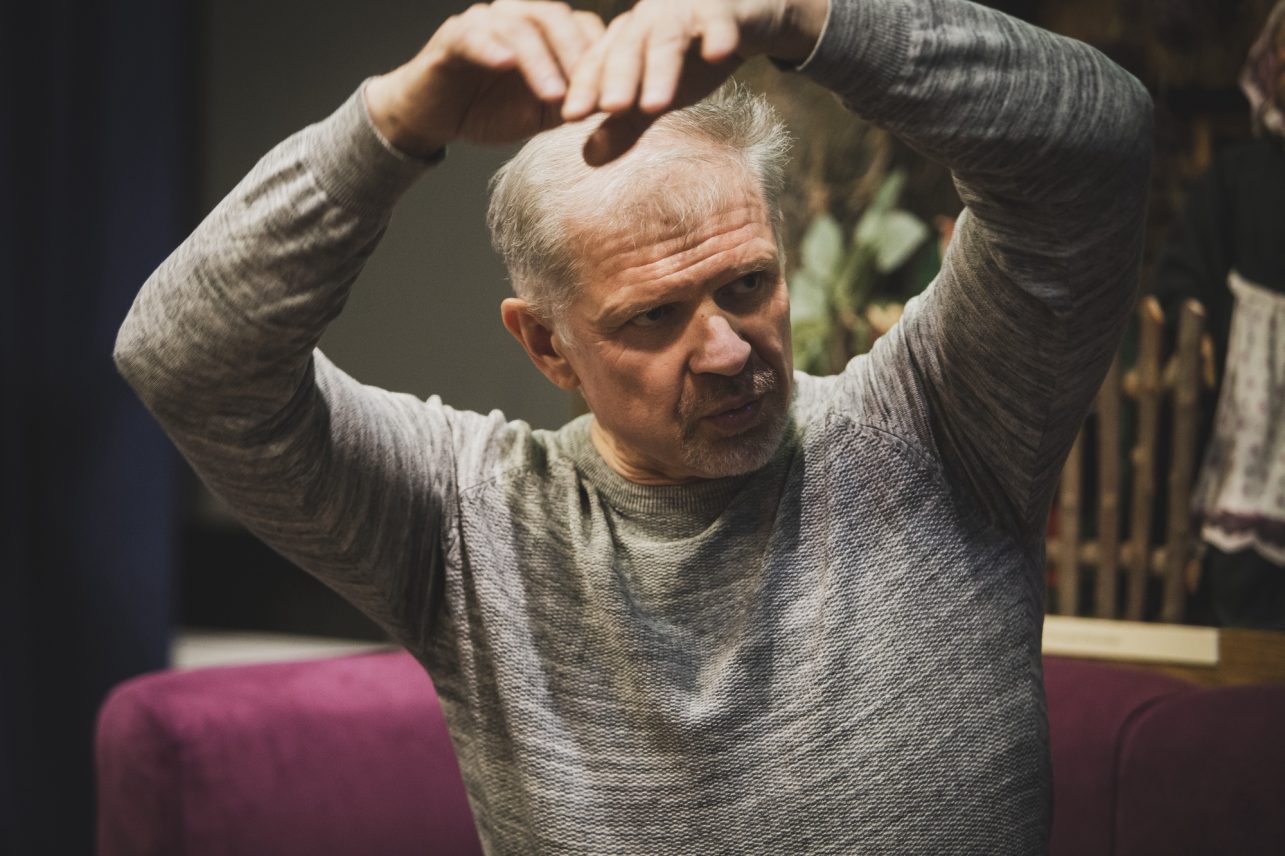
In Elektrėnai, near the church, there is a memorial to the partisans who died in the forests. You can find the name of S. Bagaliūnas’ grandfather – Pranciškus Sindaravičius-Galinis – from his mother’s side engraved there. He was a Lithuanian freedom fighter, and brigade commander, who was shot dead at 36 years of age.
Saulius sensitively remembers how his mother used to talk about her father, “He used to sit her on his lap and tell her that when she grows up, she will have everything she needs, she will enter university and he will do anything for his kids to be educated. But my mother spent her youth tragically in Siberia. She had the hardest time, separated from her family, and her parents lost and alone. Thus, my love for the country was marked by genetics.”

